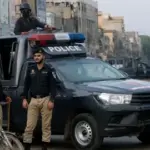The United States has officially delisted Syria HTS from its Foreign Terrorist Organizations (FTO) list. This decision was made public on July 8, 2025, after being approved by U.S. Secretary of State Marco Rubio. According to the announcement, the group has changed its actions in recent years and no longer fits the criteria for a terrorist organization. The group, known as Syria HTS, was added to the FTO list in 2018 due to its past connections with al-Qaeda. Back then, it was commonly known as the al-Nusra Front and had a reputation for supporting global jihadist movements. However, it later announced a split from al-Qaeda in 2016 and started to change its direction.
Why the US Removed Syria HTS from the FTO List
After the downfall of the Assad regime in late 2024, Syria HTS became a key part of the new Syrian government. Its leader, Ahmad al-Sharaa, also known as Abu Mohammad al-Jolani, is now acting as Syria’s interim president. The group has taken steps to present itself as a political and administrative authority. U.S. officials say the group’s new focus on running the country and forming a government played a significant part in the decision to remove the FTO label.

The decision follows a meeting between U.S. President Donald Trump and al-Sharaa in Saudi Arabia earlier this year. After this meeting, the U.S. agreed to begin easing sanctions on Syria. This includes efforts to support rebuilding efforts and allow some international trade again. The U.S. has made it clear that the removal of the FTO label does not mean full support for the group, but it acknowledges the changes that have taken place under the new Syrian leadership.
The New Face of HTS in Syria
There are still about 2,000 members of the U.S. military in Syria. Their ongoing mission focuses on preventing ISIS from returning and on assisting local security forces. Even with the recent policy changes, American troops are expected to remain in the region for the time being. Officials say the situation will be monitored closely, and any signs of support for terrorism will prompt new actions if necessary.
Many people still ask, what is HTS today? While it once had strong ties to radicalism, the group now claims to support stability and national rebuilding. Some experts warn that it could still hold onto its earlier ideas. Others believe it has changed enough to be accepted by the international community. The United Nations and several countries have not yet lifted their sanctions, but there is growing interest in how Syria HTS will lead the country moving forward.For now, this change in U.S. policy represents a significant step in how the world addresses Syria. The future of the region may depend on whether Syria HTS can truly move away from its violent past and become a responsible part of global politics.








